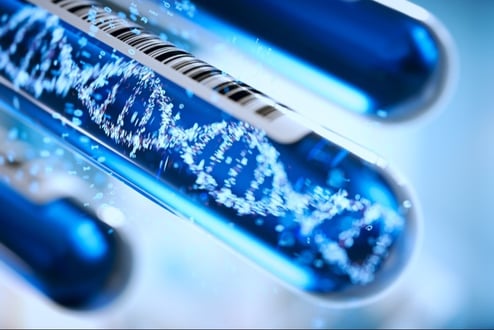Biomarker Testing for Colorectal Cancer
What are colorectal cancer biomarkers?
Biomarkers are substances in blood, tumor or other tissue that can give doctors clues for treating cancer. Testing for are performed in a lab. tests that are performed on blood are sometimes called liquid biopsies. The results may help doctors understand:
- how fast the cancer is growing
- which treatments are most likely to work
- whether or not the cancer is responding to treatment or growing
- whether or not the cancer has come back after remission
How are colorectal cancer biomarkers used?
tests may be used to select treatments, figure out if a current treatment is working, look for early signs of recurrence, and to help patients avoid side effects from treatments that will not work for them.
Which biomarkers should be tested with colorectal cancer?
and
Experts recommend testing all colorectal cancers for biomarkers known as “" and, or "" ( or ). These biomarkers measure how well the tumor can repair certain types of damage. The results have similar meaning.
- Microsatellite instablity results are reported as MSI-H ( high), MSI-L ( low) or MSS (microsatellite stable).
- Mismatch repair results are reported as or (mismatch repair deficient) or pMMR or MMR-P (mismatch repair proficient).
- and cancers are common in people with a gene mutation.
- People with advanced or MSI-high colorectal cancer may respond well to a type of known as an immune checkpoint inhibitor.
Other biomarkers for colorectal cancer treatment
- Experts recommend testing colorectal cancers for the following biomarkers to help guide treatment selection:
- Mutations in a gene known as RAS (KRAS and NRAS).
- A specific mutation in a gene known as BRAF.
- (also known as HER2/neu). Tumors that have this are known as . These tumors may respond well to a type of known as anti-HER2 therapy.
- Additional tests may be used in colorectal cancer:
- A known as an NTRK fusion is rare in colorectal cancer. People with advanced/metastatic colorectal cancer with an NTRK fusion may benefit from the Vitrakvi (larotrectinib).
- Additional tumor testing may help people learn if they are eligible for certain clinical trials.
Does insurance cover the cost for colorectal testing?
Most private health insurers cover MSI or testing in patients with colorectal cancer who meet established medical criteria. Insurers may cover the cost for additional testing, especially in people with advanced cancers, however, out-of-pocket costs may vary depending on the type of test. Visit our sections on insurance and reimbursement for more information.



